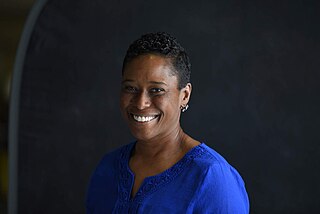
Women in Judaism have affected the course of Judaism over millenia. Their role is reflected in the Hebrew Bible, the Oral Law, by custom, and by cultural factors. Although the Hebrew Bible and rabbinic literature present various female role models, religious law treats women in specific ways. According to a 2017 study by the Pew Research Center, women account for 52% of the worldwide Jewish population.
A rabbi is a spiritual leader or religious teacher in Judaism. One becomes a rabbi by being ordained by another rabbi—known as semikha—following a course of study of Jewish history and texts such as the Talmud. The basic form of the rabbi developed in the Pharisaic and Talmudic eras, when learned teachers assembled to codify Judaism's written and oral laws. The title "rabbi" was first used in the first century CE. In more recent centuries, the duties of a rabbi became increasingly influenced by the duties of the Protestant Christian minister, hence the title "pulpit rabbis", and in 19th-century Germany and the United States rabbinic activities including sermons, pastoral counseling, and representing the community to the outside, all increased in importance.
Amy Eilberg is the first female rabbi ordained in Conservative Judaism. She was ordained in 1985 by the Jewish Theological Seminary of America, one of the academic centers and spiritual centers of Conservative Judaism.
Jewish feminism is a movement that seeks to make the religious, legal, and social status of Jewish women equal to that of Jewish men in Judaism. Feminist movements, with varying approaches and successes, have opened up within all major branches of the Jewish religion.

Agudath Israel Etz Ahayem, transliterated from Hebrew to mean the Congregation of Israel Tree of Life, is a Conservative Jewish synagogue located at 3525 Cloverdale Road in Montgomery, Alabama, in the United States.

Temple Beth Israel is a Reconstructionist synagogue located at 1175 East 29th Avenue in Eugene, Oregon, in the United States. Founded in the early 1930s as a Conservative congregation, Beth Israel was for many decades the only synagogue in Eugene.

Congregation Beth Israel is a Reform Jewish congregation and synagogue, located at 10460 North 56th Street in Scottsdale, Arizona, in the United States. Incorporated in 1920, the congregation affiliated with the Union for Reform Judaism in 1935.
Temple Beth Israel was a Jewish synagogue located at 840 Highland Road in Sharon, Pennsylvania, in the United States. Originally called House of Israel Congregation, it was founded in 1888 as an Orthodox congregation by Eastern European Jews. The congregation merged with Congregation Rodef Sholom of Youngstown, Ohio in July, 2013; and the former synagogue building was sold to a Christian church in 2014.
Temple Beth Israel is a Reform Jewish synagogue located at One Bowman Street in Plattsburgh, Clinton County, New York, in the United States. Established in 1861, it initially served Plattsburgh's Jewish population and itinerant Jewish tradesmen in the region. After worshiping in temporary locations, the congregation acquired its first permanent home on Oak Street in 1866. Beth Israel adopted Reform services in 1910, and joined the Union for Reform Judaism in 1913.

Congregation Beth Israel is an independent, traditional egalitarian Jewish congregation and synagogue, located at 229 Murdock Avenue in Asheville, North Carolina, in the United States. Founded in 1899 as Bikur Cholim, it was an Orthodox breakaway from Asheville's existing synagogue. It hired its first full-time rabbi in 1909, opened a religious school in 1911, and acquired its first building, which burnt down in 1916, in 1913.
Congregation Beth Israel is a Jewish congregation and synagogue located at 411 South Eighth Street, in Lebanon, Pennsylvania, in the United States. Founded in 1907 to provide services for the High Holidays, it was then, and remains today, the only synagogue in the Lebanon area.

Temple Beth Israel was a Jewish congregation and synagogue located at 905 College Avenue in Niagara Falls, New York, in the United States. Founded in 1898 and formally incorporated in 1905 as an Orthodox synagogue, it hired its first rabbi in 1916, and joined the Conservative movement in 1931.
The first openly lesbian, gay, bisexual, and transgender clergy in Judaism were ordained as rabbis and/or cantors in the second half of the 20th century.
Sandy Eisenberg Sasso is the first woman to have been ordained a rabbi in Reconstructionist Judaism. She was ordained by the Reconstructionist Rabbinical College in Philadelphia, on May 19, 1974. She is also the author of many children's books on religious topics.
Linda Joy Holtzman is an American rabbi and author. In 1979, she became one of the first women in the United States to serve as the presiding rabbi of a synagogue, and the first woman to serve as a rabbi for a solely Conservative congregation, when she was hired by Beth Israel Congregation of Chester County, which was then located in Coatesville, Pennsylvania.
This is a timeline of women rabbis:
This is a timeline of LGBT Jewish history, which consists of events at the intersection of Judaism and queer people.

Sandra Lawson is an American rabbi and the first director of Racial Diversity, Equity and Inclusion at Reconstructing Judaism. She previously served as Associate Chaplain for Jewish Life at Elon University. Lawson became the first openly gay, female, and black rabbi in the world in 2018. She is a veteran, vegan, sociologist, personal trainer, food activist, weightlifter, author and musician.
Jody Cohen is an American retired rabbi who became the first woman to serve as rabbi for a Jewish congregation in Connecticut. In 1984, she became the first female associate rabbi to serve a Connecticut congregation at Congregation Beth Israel in West Hartford. There she founded Noah's Ark, the first synagogue-run preschool daycare in North America. Cohen went on to serve as solo rabbi at Temple Beth Hillel in South Windsor—another first—from 1989 to 1995.







